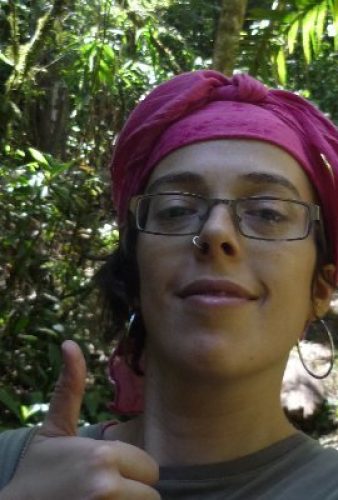- Position:
- post-doc
- Unit:
- Population Ecology

2020-On: PhD in Environment and Natural Resources, University of Santiago de Compostela, Department of Biology, EcoPast Lab (GI-1553 USC), Spain.
2016: MSc in Biodiversity and Conservation Biology, Pablo de Olavide University (Seville) - Doñana Biological Station (CSIC), Departament of Evolutionary Ecology, Spain.
2014: BSc in Biology, University of Santiago de Compostela, Department of Biology, EcoEvoPlantas Lab (GI-1287 USC), Spain.
The effects of biodiversity on ecosystem functioning, such as mammals and plants on biogeochemical carbon cycle, and the interplay of biotic communities in ecological diversification processes at different spatial scales are the main research topics of my interest. During my PhD I studied the effects of mammal and tree communities on soil organic matter and microbial carbon utilization in the northern Amazon. I combined landscape-scale biodiversity data with soil biogeochemical, molecular and microbial analyses (ED-XRF, CNH analysis, FTIR-ATR, EcoPlates) to understand how mammal and tree diversity are affecting soil organic matter (SOM) composition, but also soil microbial carbon consumption. This is relevant because we can predict how and to what extent aboveground biotic communities, especially large species that are more susceptible to the current loss of biodiversity, are favoring the accumulation and sequestration of soil organic carbon rather than its release to the atmosphere, contributing to mitigate the effects of climate change. I am now involved in the project investigating the multilevel effects of predation-induced prey stress on temperate forest ecosystem functioning. The topic specifically focuses on the impact of predation risk by the presence of wolves and lynx on stoichiometry along trophic levels down to the soil through the potential stress response by ungulates (red deer and roe deer).
2022: Doctoral research stay, Center for Functional and Evolutionary Ecology (CEFE), UMR 5175 CNRS (France), 3 months.
2018: Professional internship, CERAS wildlife rescue center, Quercus Association (Portugal), granted by GALEUROPA 2017 (Spain), 3 months.
2017: Postgraduate in Tropical Ecology and Conservation, Organization for Tropical Studies (OTS) and University of Costa Rica (Costa Rica), granted by AUIP 2016 (Spain) and OTS 2017 (Costa Rica), 2 months.
Publication list
Losada M, Salaverri L, Docampo M, Guitián J, Sobral M. 2023. Bird communities after 37 years in a rural area of NW Spain. NACC 30: 1-17. https://doi.org/10.15304/nacc.id7972
Losada M, Martínez Cortizas AM, Silvius KM, Varela S, Raab TK, Fragoso JMV, Sobral M. 2023. Mammal and tree diversity accumulate different types of soil organic matter in the northern Amazon. iScience 26 (3): 106088. https://doi.org/10.1016/j.isci.2023.106088
Guitián J.A, Sobral M, Veiga T, Losada M, Guitián P, Guitián JM. 2017. Differences in pollination success between local and foreign flower color phenotypes: a translocation experiment with Gentiana lutea (Gentianaceae). PeerJ 5: e2882. https://doi.org/10.7717/peerj.2882
Sobral M, Losada M, Veiga T, Guitián J, Guitián J, Guitián P. 2016. Flower color preferences of insects and livestock: effects on Gentiana lutea reproductive success. PeerJ 4: e1685. https://doi.org/10.7717/peerj.1685
Losada M, Veiga T, Guitián J, Guitián J, Guitián P, Sobral M. 2015. Is there a hybridization barrier between Gentiana luteacolor morphs? PeerJ 3: e1308. https://doi.org/10.7717/peerj.1308